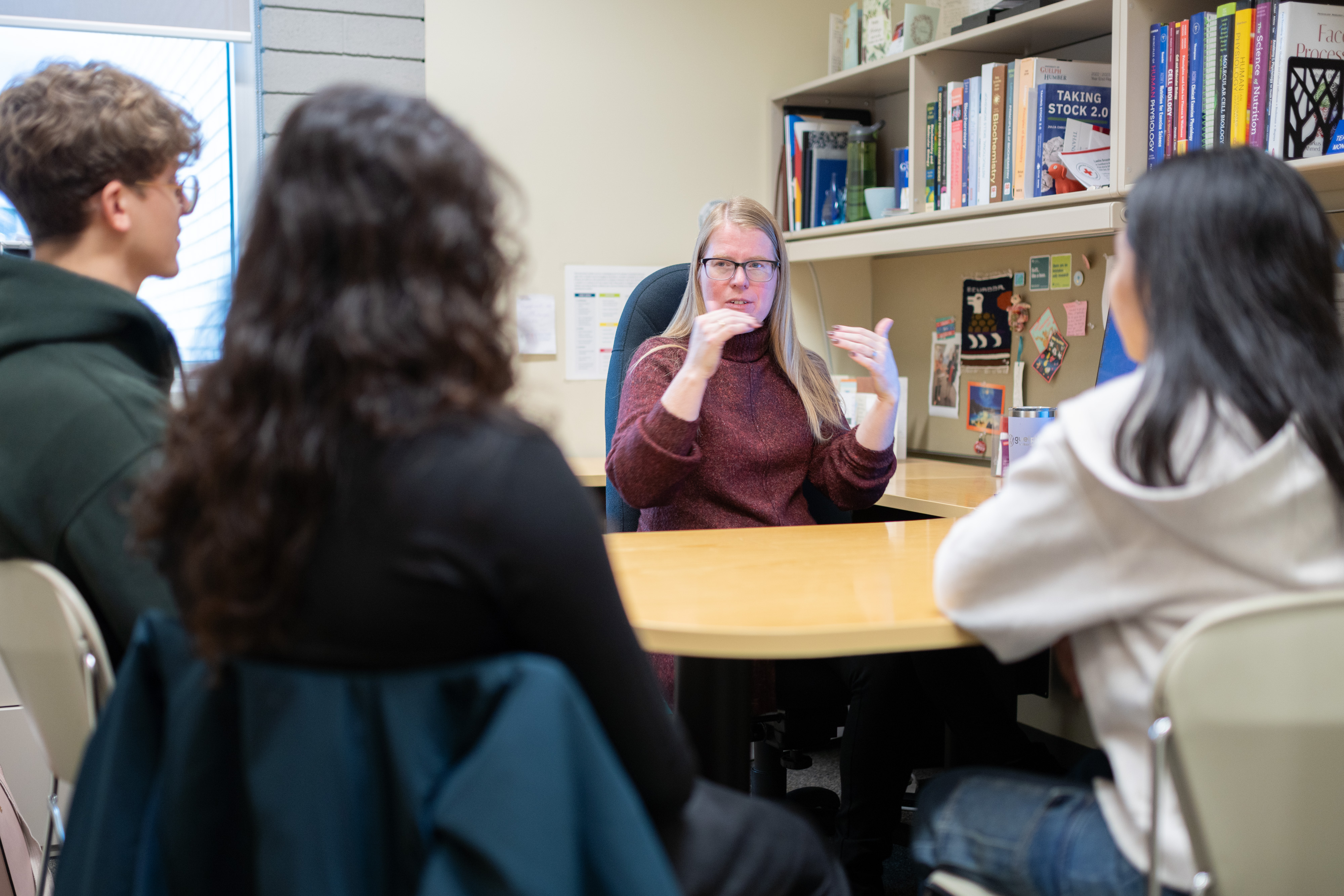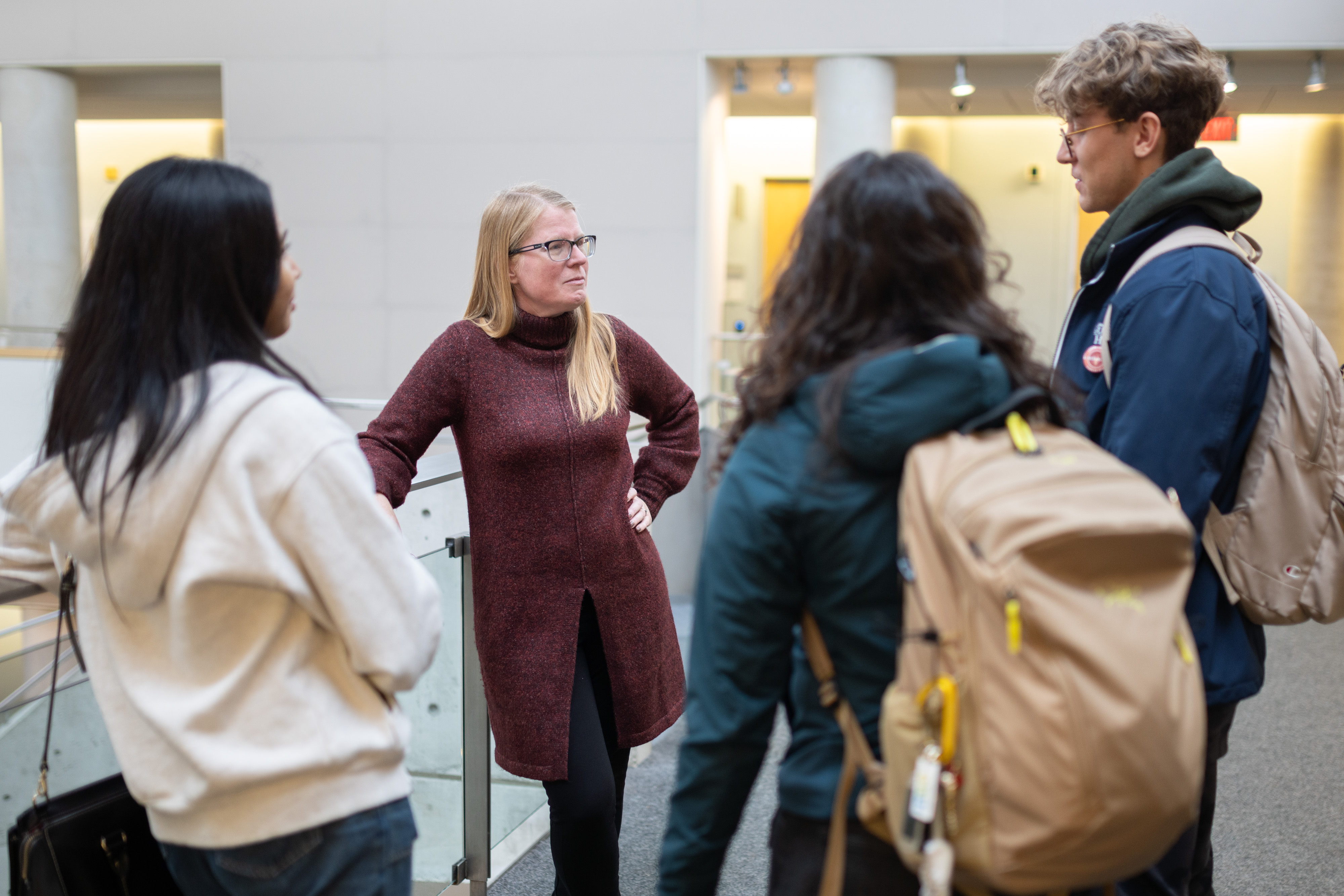
Ultimately, if you wouldn't ethically allow your classmate/colleague to do something for you, you shouldn't let AI do it for you either.
In 2024, artificial intelligence (AI) is seemingly ever-present. Believe it or not, there are a variety of uses for AI in the post-secondary education sector for students and educators.
University of Guelph-Humber Kinesiology (U of GH) instructor Dr. Laelie Snook recently attended the Society for Teaching and Learning in Higher Education (STLHE) conference and this year’s event had a heavy focus on AI. She shared her insights on AI’s responsible and ethical uses in the sector, based on her experience at the conference:
Q: Are you surprised that there are helpful functions for AI in the post-secondary education sector?
A: If you had asked me that a year ago, I would have said a resounding yes. However, living with the new reality of AI, I'm not at all surprised that there is a place for appropriate use of AI in post-secondary, both for educators and learners. In addition to the conference, I have been an active member of the U of GH Teaching and Learning Community of Practice and AI is a main topic of conversation in those meetings. Many positive and productive ways of using AI have been discussed and the necessity of its use to best prepare our graduates for “the real world.”
Q: What are the top three productive ways you learned students and instructors are using AI?
A: (1) Spelling, grammar and readability editing, particularly for people working or learning in a non-first language; (2) Creating practice problems with solutions. Great for educators and learners; (3) Harnessing the tools embedded within the learning management system.

Q: What are some pitfalls of these AI benefits?
A: Any time anyone (real or virtual) does the work for you, there is a lost opportunity for learning. However, I think the benefits of the above uses of AI far outweigh that potential loss.
Q: What can the use of AI in the post-secondary education sector mean for academic integrity and intellectual property?
A: I think we're still trying to figure this out. It's important that instructors are clear with their expectations of appropriate use of AI in their classroom to help students understand what would be crossing the line into academic dishonesty.
The intellectual property aspect is interesting. Students are uploading course content (instructor's IP) to generative AI tools and having the tool create exam questions, study guides and practice problems, which I think is a great use of AI from the learner's perspective. My understanding is that uploading the materials isn't storing the files in a retrievable format, so, in theory, the IP is still maintained. But I'd definitely like to explore this more, and I think instructors will need confirmation on this.
The good news I learned from a study performed by Dr. Dan Grunspan's group is that when given the option to use AI for assessments, students are largely using it appropriately, both out of fear of academic misconduct repercussions and concern about missed opportunities for learning.

Q: Was there any notable research at the STLHE event about AI you feel would be valuable for students to be aware of?
A: I think the most important message I learned about AI use was from a study performed by Dr. Tranum Kaur. They allowed students to use ChatGPT as a collaborator for a scientific literature review. Students had to verify any content or citation provided by ChatGPT as part of the process. Many students found that ChatGPT was not only making up (hallucinating) citations, but also the content that was supposedly part of the fake studies. Even ChatGPT recommends not using itself in this context.
Q: How can students and instructors alike learn to use AI effectively and responsibly?
A: They can spend some time playing around with generative AI tools. Attend a workshop. Learn what AI tools can and cannot do well in your own context. Then, work within the expectations of the institution and/or a given course. Ultimately, if you wouldn't ethically allow your classmate/colleague to do something for you, you shouldn't let AI do it for you either.


